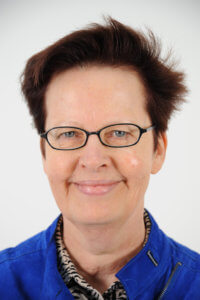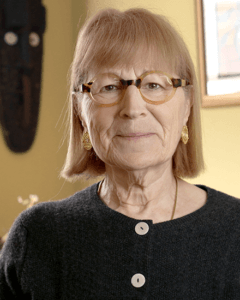Bernal Prize 2021: Judy Wajcman and Nelly Oudshoorn
The Society for Social Studies of Science annually awards its Bernal Prize to an individual who has made distinguished contributions to the field of STS. Past winners have included founders of the field, along with outstanding scholars who have devoted their careers to the understanding of the social dimensions of science and technology. The 2021 Prize goes to Judy Wajcman and Nelly Oudshoorn.
Judy Wajcman
Judy Wajcman is the Anthony Giddens Professor of Sociology at the London School of Economics, and the Principal Investigator of the Women in data science and AI project at the Alan Turing Institute. Prior to joining the LSE in 2009, she was the Professor of Sociology in the Research School of Social Sciences at the Australian National University. She has held numerous visiting fellowships, most recently the Mellon Fellowship at the Center for Advanced Study in the Behavioral Sciences at Stanford University (2017-18). She was President of the Society for Social Studies of Science (2009-2011) and was an editor of the (2008) Handbook of Science and Technology Studies.
After finishing her PhD on women, co-operatives and industrial democracy at Cambridge, her first post was at the University of Edinburgh, and a product of her time there was The Social Shaping of Technology (with Donald Mackenzie). Her research over the years has spanned science and technology studies, the sociology of work and employment, feminist theory, and the sociology of time. Her books Feminism Confronts Technology and TechnoFeminism have been translated into several languages, as has Pressed for Time: The Acceleration of Life in Digital Capitalism, which was awarded the Ludwik Fleck prize. Her current research at Turing brings her full circle, to re-examining how gender relations shape technology, from technofeminism to data feminism!
Nelly Oudshoorn

Acceptance Statements:
Wajcman
I am thrilled to be awarded the Bernal prize. It is a tremendous honour. I owe a great debt to the 4S society for providing a stimulating environment for discussion, and the most generous international community of scholars one could hope for. Attending the annual meetings over decades has given me intellectual energy, wonderful friendships, and myriad examples of the very highest scholarship to aim for. My own work is very much the product of our collective endeavours, as we well know from SSK (sociology of scientific knowledge). I cannot imagine my work without STS. Nor can I imagine my work without what we now refer to as second wave feminism. Building a feminist perspective into the social science debates about technology has been a long journey and I am fortunate to have shared the journey with fabulous scholars, including Nelly Oudshoorn. My warm thanks to members of the Bernal Prize Committee for this award and for the enormous amount of work that such prize committees involve.
Oudshoorn
I am really grateful for the great honour of being awarded the Bernal Prize. I feel very privileged to have been part of the science for the people and feminist movements in the 1970s/80s in which students and professors engaged in developing new knowledges and fields, including Biology & Society Programs and Women’ Studies. Changing the curriculum of the natural and social sciences thus became a major driving force throughout my academic life. Ironically, early resistances to our endeavours, most notably the boundary work of biology faculty members, became my major incentive to publish in peer-reviewed international journals (if you cannot beat them, join them). Luckily there were more welcoming voices as well. I vividly remember my excitement when I attended the 4S/EASST Annual Meeting in Amsterdam in 1988 and realized that there was a growing STS community out there. Ever since then the 4S annual meetings have been an inspiring and warm intellectual home, so I am happy for this opportunity to thank you all! More specifically, I want to thank Adele Clarke, who became a wonderful colleague and friend, and Donna Haraway, Sandra Harding, Evelyn Fox Keller, and Anne Fausto-Sterling, who have inspired and taught me how to develop a critical vocabulary to challenge gender dualisms and invisibilities in the life sciences. I also learned that visiting other places is extremely rewarding. I want to thank my colleagues at Cornell University, NTNU in Trondheim, Tema-T in Linkoping, and the STS departments in Vienna and Taipei for inviting me as visiting professor. These visits enabled me to bring together scholarship on user-technology relations and diversity developed in different disciplines. I enjoyed it a lot to collaborate on book projects with my Scandinavian, Dutch and American colleagues, particularly Ann Rudinow Saetnan, Marta Kirejczyk, Trevor Pinch, Sampsa Hyysalo, and Torben Elgaard Jensen. I am also grateful to the institutions that have supported my work. Special thanks to my colleagues at the former Women’s Studies in Biology and Science Dynamics Department of the University of Amsterdam, particularly Marianne van den Wijngaard, Jacqueline Cramer and the unfortunately late Olga Amsterdamska. I also want to thank my current colleagues at the Science, Technology and Policy Department at University of Twente, most notably Arie Rip, Ellen van Oost, Stefan Kuhlman, and Annalisa Pelizza. It was a real pleasure to act as chair of the board of WTMC, the Netherlands Graduate Research School of Science, Technology and Modern Culture, and I am grateful for the careful work of the two presidents I worked with, Karin Bijsterveld and Sally Wyatt. My deep gratitude goes as well to all the people who welcomed me into their clinics and homes for long interviews, conversations and observations. Listening and learning from them was a real privilege. Finally, my deepest appreciation and thanks go to my partner Rob Vrakking for his sustained support throughout my whole academic life and acting as first reader. And then there was music!

